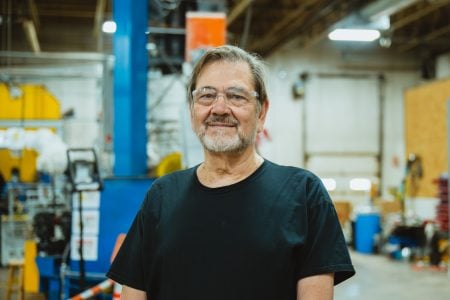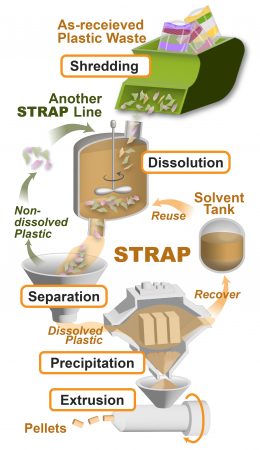
The REMADE Institute, a U.S. Department of Energy (DOE) public-private partnership, will provide $600K in funding for a new recycling process technology to extract pure polypropylene (PP) from multilayer plastic packaging waste.

The project is a partnership between Michigan Technological University, the University of Wisconsin–Madison, and Braskem America, all of which are providing additional foundational project funding to develop new Solvent Targeted Recycling and Precipitation (STRAP) technology.
At Michigan Tech, Ezra Bar-Ziv, a professor of Mechanical Engineering-Engineering Mechanics, is now working to develop the pilot scale application of STRAP.
“We are excited to design, build, and operate a unique STRAP plastic recycling pilot plant that will be used to produce larger quantities of high-quality recycled resins so that we can validate our resins in several downstream applications,” he said. “We expect to use this system to analyze a wide range of feedstocks and de-risk STRAP technology.”
STRAP was pioneered at the UW-Madison by George Huber and a team of engineers at Chemical Upcycling of Waste Plastics (CUWP.org), a multi-university center funded by the US Department of Energy.

“Sustainability is a collaborative effort. It is critical that the companies in the plastic industry work together with academia and government agencies to bring innovative recycling technologies to the market,” said Huber.
The U.S. Department of Energy and REMADE selected 14 projects in October 2023 with a combined total of $9.8 million in research and development funding. Since the Institute’s founding in 2017, REMADE has launched or selected nearly 100 R&D projects, representing a total combined value of nearly $100 million.
“We are honored to have this innovative plastic recycling project recognized by the REMADE Institute, an organization that is dedicated to investing in technology that is vital for the future of manufacturing,” said Ana Camilo, Specialist Researcher, Braskem. “This funding will enable Braskem, Michigan Technological University, and the University of Wisconsin-Madison to revolutionize the circular re-use of multilayer plastic and potentially create a pathway to divert hard-to-recycle plastic waste from landfills into valuable new material feedstock sources.”
The REMADE Institute enables the early-stage applied research and development of key industrial platform technologies that could dramatically reduce the embodied energy and carbon emissions associated with industrial-scale materials production and processing.
“We are excited to design, build, and operate a unique STRAP plastic recycling pilot plant that will be used to produce larger quantities of high-quality recycled resins so that we can validate our resins in several downstream applications.
By focusing its efforts on the technical and economic barriers that prevent greater material recycling, recovery, remanufacturing, and reuse, the REMADE Institute seeks to motivate industry investments to advance technology development and support the U.S. manufacturing eco-system.
Braskem America is an indirect wholly owned subsidiary of Braskem U.S.A. headquartered in Philadelphia. The company is the leading producer of polypropylene in the United States, with five production plants located in Texas, Pennsylvania, and West Virginia, an Innovation and Technology Center in Pittsburgh, and a New Renewable Innovation Center in Boston focused on leveraging groundbreaking developments in biotechnology and advanced materials.